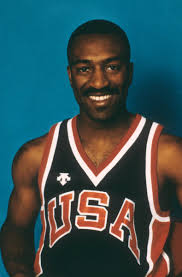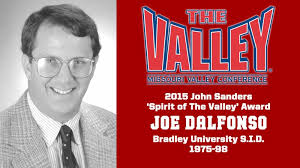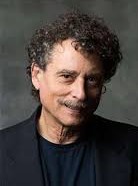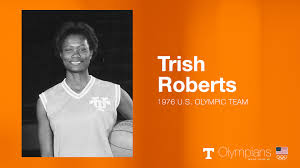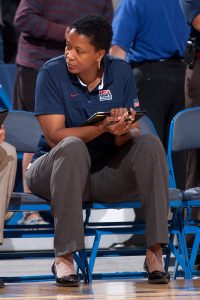The NBA Finals date back to 1947 (when they were known as the Basketball Association of America Finals) and the very 1st NCAA tourney was held in 1939. Olympic basketball competition is even older: it debuted as a demonstration event in 1904 and the men’s version became a medal sport in 1936, with the women finally getting their chance to go for the gold in 1976. The United States has dominated Olympic basketball competition from the start: the men have won 15 gold medals in the 18 tournaments they have participated in during the past 84 years, while the women have won 8 gold medals in the 10 tournaments in which they have competed during the past 44 years. Those of you who were looking forward to the 2020 Olympics opening ceremonies in Tokyo on July 24, 2020 will have to wait an extra 364 days, as the coronavirus caused a postponement until July 23, 2021. Due to the absence of college basketball since mid-March, HoopsHD’s Jon Teitel decided to fill the void by trying to interview as many prior Olympic players/coaches as possible so that you have something to read this summer while not watching the Summer Games. We continue our coverage by chatting with Chuck Darling about becoming a Phi Beta Kappa and winning a gold medal in 1956.
In the fall of 1945 you were a 6’2” high school player but after growing 6” in 6 months you became a 6’8” all-state center: how much of an advantage was your size on the court? I had a great coach: I was 2nd-string as 6’2” but he adjusted the team as I grew. There was a narrow lane back then so he put me under the basket and my main thing was rebounding. I was very fortunate to not lose my coordination as I grew taller.
You went to high school in Montana/Colorado: what made you choose Iowa? I had many ties: I was born in Denison, IA, my dad went to graduate school there, and all of my mom’s relatives were from there. I was very impressed by the Big 10 as well.
As a junior you had 17.6 RPG, which remains a school record 70 years later: what is the key to being a great rebounder? Getting position: you also need an intuitive sense of where the ball will go. Jumping/timing is also critical.
You finished your career as a unanimous all-American, Big 10 MVP, and Phi Beta Kappa: how were you able to balance your work on the court with your work in the classroom? I took some physics courses over the summer so that the labs would not interfere with basketball practice. I would study during road trips and enjoyed both school and basketball because they came fairly easily to me.
In the spring of 1952 you were drafted 8th overall by Rochester (1 spot ahead of Clyde Lovellette): why did you choose the AAU over the NBA, and do you have any regrets? I was not interested in playing pro basketball at the time and the salary was lower back then. I preferred to be a geologist and was impressed with the Phillips organization so I have no regrets at all.
You were a 3-time AAU All-American with the Phillips 66ers from 1954-1956 and a 2-time MVP of the National Industrial League: what did it mean to you to receive such outstanding honors? I was really pleased to be recognized for my contributions to the team. I did not go after individual honors and just tried to play the best that I could.
On April 4, 1956 in the final round of the Olympic tryouts in Kansas City you had 21 PTS/10 REB in a 4-PT win over the College All-Stars, who included your own college coach (Bucky O’Connor) and an All-American named Bill Russell (your future Olympic teammate had 19 PTS/7 REB): how were you able to outplay Russell, and what did Coach O’Connor say to you after the game? I did not really talk to Bucky after the game. I had the best half against Bill that I ever played. My assignment was to mainly keep him off the boards: he could out-jump me so I just focused on positioning. I scored 19 PTS in the 1st half even though it was not in the game plan but only 2 PTS in the 2nd half after they adjusted their defense.
You won a gold medal with team USA at the 1956 Olympics: what did it mean to you to represent your country, and what did it mean to you to win a gold medal? It was a fantastic experience. I remember meeting a lot of other players at the opening ceremony, which was awe-inspiring. The games were easy because we were such a dominant team with a lot of talent: we could put any of our 5 on the court and play well. Winning a gold medal was 1 of the biggest thrills of my life.
After retiring from basketball you became a senior exploration geologist for a division of Phillips Petroleum: how did you get into the business, and how did you like it? I had wanted to be a geologist since I was in the Boy Scouts: I was fascinated with rocks and got a merit badge. I spent time in London and Egypt with Phillips.
You played sports well into your 80s, competing in the World Senior Games in discus/shot put/volleyball: which sport were you best at, and which sport did you enjoy the most? Basketball, by far. I liked baseball as a kid in Montana but my school did not have a team so I got into discus/shot put, which I also did in college. I enjoyed the camaraderie at the Senior Games an did it for about 15 years in Utah.


